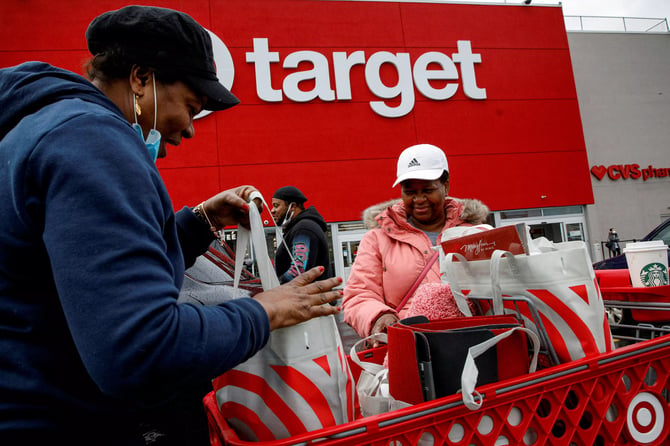Target Profit Sinks as Inflation Bites

Major US retailer Target reported a significant profit decline of 90% in the second quarter, as inflation-hit consumers pulled back on spending on all but the most essential items. Target's quarterly net income fell to $183 million, down significantly from $1.8 billion during the same period a year ago.
Retailers across the country have been forced to slash prices on general merchandise because of excess inventory they hoarded during the pandemic as a hedge against supply-chain blockages.
Now, with customers concentrating more of their spending on food and gasoline, price cuts are having little effect, as Target ended the quarter with 1.5% more inventory than it had three months earlier and 36% more than it had this time last year.
After seven consecutive quarters of sustained profit growth, this marks the second successive quarter of falling earnings at Target, with the latest decline far more than the 40% drop in the previous quarter.
What does this mean for me?
The Target share price fell 3%, immediately after the earnings report was released. Target’s woes contrast with rival Walmart, which recently reported profit that was down only slightly from a year earlier.
Analysts point to the fact that Walmart’s profits are more reliant on essentials like groceries. Target typically depends on discretionary spending. Consumers' pullback on demand for non-essential items is one of the factors raising fears of a recession, as consumer spending is responsible for almost 75% of all economic activity in the US.
More News

Trump Drops Selected Tariffs in Response to Inflation Pressures
1 day ago

Tariffs on Mexico Test Nuevo Leon’s Industrial Momentum
5 days ago

US Moves to Ease Latin American Tariffs as Food Inflation Mounts
1 week ago

Japan Faces First GDP Shrinkage in Six Quarters as Tariffs Bite
1 week ago

India’s Inflation Dip Strengthens Case for RBI Easing
1 week ago

Europe Rallies as Shutdown Eases, Earnings Impress
2 weeks ago

Germany’s Trade Surplus Slides as Imports Outpace Exports
2 weeks ago

Markets Rally as US Moves Toward Ending Prolonged Shutdown
2 weeks ago